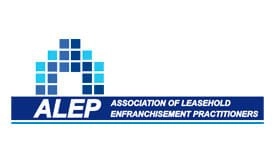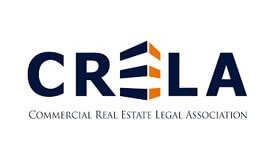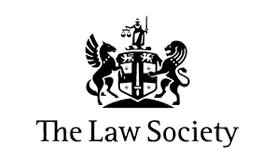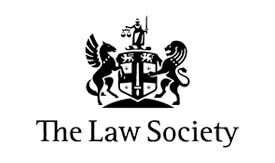If you have received a Compulsory Purchase Order, then unfortunately you are one of the unlucky few who have property or land in the way of a planning permission of a proposed development scheme being granted by the government or local authority for the construction of a public infrastructure or amenity for the benefit of the public.
In essence, a Compulsory Purchase Order allows public bodies the power to acquire and purchase property or land without the consent of the owner. Public bodies obtain Compulsory Purchase Orders so that they have a right to acquire private land for a development scheme in which there is a compelling case in the public interest and that it is subject to the conditions provided for by law.
Compulsory Purchase Orders can be obtained by acquiring authorities such the government, local council, utility companies, government agencies, Highways England, and transport companies for developments such as regeneration works or transport or infrastructure projects. Examples include the High Speed Two (HS2) railway and the Heathrow Expansion Project.
Acquiring authorities with a Compulsory Purchase Order does not mean that they can force homeowners to sell their land. Compulsory Purchase Orders merely give the acquiring authority the power to purchase your land or to acquire an interest on the land.
However, homeowners have certain rights that the acquiring authority need to adhere to.
In the first instance, the acquiring authority should attempt at contacting homeowners to negotiate acquiring their property or land by agreement. Only when an agreement cannot be reached then the acquiring authority would go down the Compulsory Purchase Order route.
What Should I Do After Receiving A Compulsory Purchase Order?
If you have received a Compulsory Purchase Order then you can either accept the order and proceed to negotiations with the acquiring authority about the market value of your property or land and compensation, or you can object the order, providing that an objection is made within 21 days since the Compulsory Purchase Order was served.
How Do I Object To A Compulsory Purchase Order?
Grounds for an objection of a compulsory purchase order include:
- The order was not made within the promoting public body’s statutory authority
- It is not necessary to acquire the land or part of it through compulsory purchase
- The public benefit of the development does not outweigh the harm posed to the interests of the homeowners of the land that is to be acquired
If an objection is made, a public inquiry will be held within 22 weeks of when the public inquiry was confirmed. During the public inquiry, the Minister will either confirm, modify, or reject the Compulsory Purchase Order.
If the Compulsory Purchase Order is confirmed, the acquiring authority have 3 years to exercise the Compulsory Purchase Order.
Challenging The Confirmation Of A Compulsory Purchase Order
You can appeal to challenge the Compulsory Purchase Order in court proceedings in the High Court if you do not agree to the Minister’s decision in confirming the Compulsory Purchase Order. A challenge to the confirmation of a Compulsory Purchase Order must be made within 6 weeks of the first press publication of the Notice of the Confirmation.
A challenge can be made on one or more of the following grounds:
- That the powers used are “ultra vires” – that means they go beyond the powers granted by the authorising Act of Parliament;
- That the procedural rules have not been followed correctly;
- That the Minster, or the Inspector, has not acted properly in reaching a decision – for example, there was no evidence to support the decision, or that irrelevant considerations were taken into account or relevant ones ignored
If the challenge is successful and accepted by the Court, then the Court can abolish the Compulsory Purchase Order.
What If I Accept The Compulsory Purchase Order?
If you choose to accept the Compulsory Purchase Order, then the acquiring authority can acquire your land through either a notice to treat/notice to entry or a general vesting declaration.
The difference between the two is that a notice to treat/notice to entry provides a specific date of when the acquiring authority will take possession of the land by giving 28 days’ notice, but the ownership of the land does not change. On the other hand, a general vesting order (GVD) allows the acquiring authority to take possession of the land, as well as taking ownership of the land after giving two months’ notice.
Once you have received a notice to treat/notice to entry or a general vesting order, you would need to submit a Notice of Claim to the acquiring authority to claim for compensation for the loss of your land during the Compulsory Purchase Order process.
What Compensation Can I Claim From A Compulsory Purchase Order?
Any homeowner that has been served a Compulsory Purchase Order has a right to claim for compensation under the principle of equivalence. The principle of equivalence holds that you should not be worse off or better off after the Compulsory Purchase Order than you were before.
If you have been in contact with the acquiring authority after receiving a Compulsory Purchase Order, then you should keep a record of all communications and all expenses or losses occurred as a result of the Compulsory Purchase Order, as you would be able to claim compensation for the expenses or losses accrued.
Compensation from a compulsory purchase order can be categorised under:
- The value of the land taken
- Severance and injurious affection – Compensation for the depreciation in the value of your land you retain where only part of your land holding is required
- Disturbance – the costs and losses incurred as a result of being disturbed from the occupation of the property
- Professional Fees – compensation for reasonable surveyor and solicitor fees
However, it needs to be noted that homeowners are under a duty to mitigate losses. Therefore, the acquiring authority will only compensate for expenses or losses that are reasonable and will not compensate for losses that have increased as a result of the homeowner’s actions.
For example, when looking to instruct a removal firm, homeowners should obtain three quotes from reputable firms and choose the cheapest firm to mitigate losses.
Unfortunately, it is common for disputes to occur during negotiations regarding what is to be compensated and how much compensation you think you should receive.
If you are in a dispute over compensation from a Compulsory Purchase Order, its needs to be noted that disputes over compensation do not correlate to grounds for objecting a Compulsory Purchase Order.
If you cannot agree compensation terms with the acquiring authority then you can refer the matter to the Upper Tribunal (Lands Chamber) to decide on the reasonable amount of compensation you should receive.
What Happens After Compensation Has Been Agreed?
Once compensation has been agreed, the next stage is the acquisition approval stage followed by the conveyancing process.
The acquisition approval stage is where the acquiring authority produces a Valuation Report detailing the agreed market value and compensation, and to clarify or verify any aspects of the Compulsory Purchase Order Claim.
Once the Valuation Report is confirmed, the next stage is the conveyancing process, which is the legal process of selling your property to the acquiring authority, and generally take around three months.
Following completion of your property sale, your Compulsory Purchase Order claim would now have been settled ‘in full and final settlement’.










